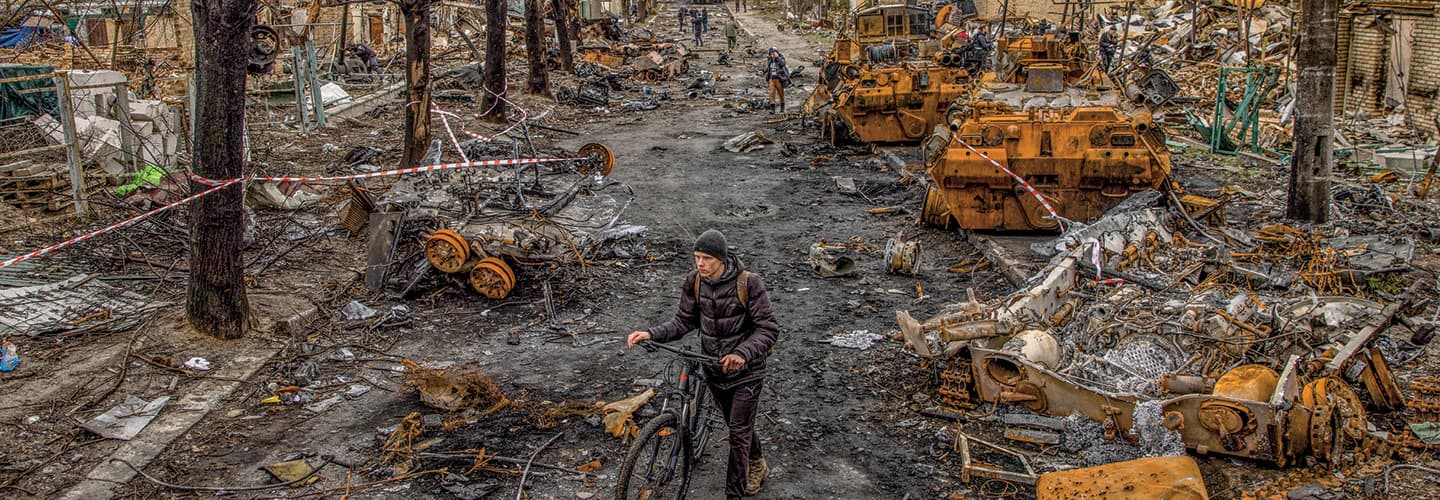When Russian troops finally retreated last spring from the town of Bucha, Ukraine, they left behind a grim scene: bodies of civilians scattered on the streets, in basements, or in backyards, many with gunshot wounds to their heads, some with their hands tied behind their backs.
Russian soldiers had been trying to advance toward Ukraine’s capital, Kyiv, but they met fierce resistance. During the five weeks they occupied Bucha, they appear to have taken out their frustration on the town’s civilian population. The evidence suggests the Russians killed recklessly and sometimes sadistically.
“They were not able to defeat our army, so they killed ordinary people,” says Nazar Havryliuk, 17, of Bucha.
The discovery of atrocities in Bucha—and other targeting of civilians in the war in Ukraine, such as Russian missile attacks on hospitals and schools—has prompted accusations of war crimes. President Biden has called Russian President Vladimir Putin “a war criminal” for his role in overseeing Russian troops.
Last Spring, Russian troops withdrew from the town of Bucha, Ukraine. What they left behind was shocking. There were bodies of civilians scattered on the streets, in basements, or in backyards. Many of the victims had gunshot wounds to their heads. Some had their hands tied behind their backs.
Russian soldiers had been trying to get closer to Ukraine’s capital, Kyiv. The fierce resistance they met along the way led them to occupy Bucha for five weeks. It appears that they took out their frustration on the town’s civilian population during that time. The evidence suggests the Russians killed recklessly and sometimes viciously.
“They were not able to defeat our army, so they killed ordinary people,” says Nazar Havryliuk, 17, of Bucha.
Beyond the brutal attacks in Bucha, Russian troops have targeted other civilians in the war in Ukraine. That includes the Russian missile attacks on hospitals and schools. This has prompted accusations of war crimes. President Biden has called Russian President Vladimir Putin “a war criminal” for his role in commanding Russian troops.

